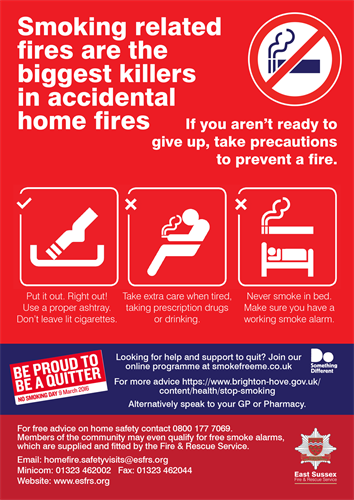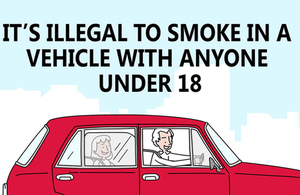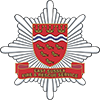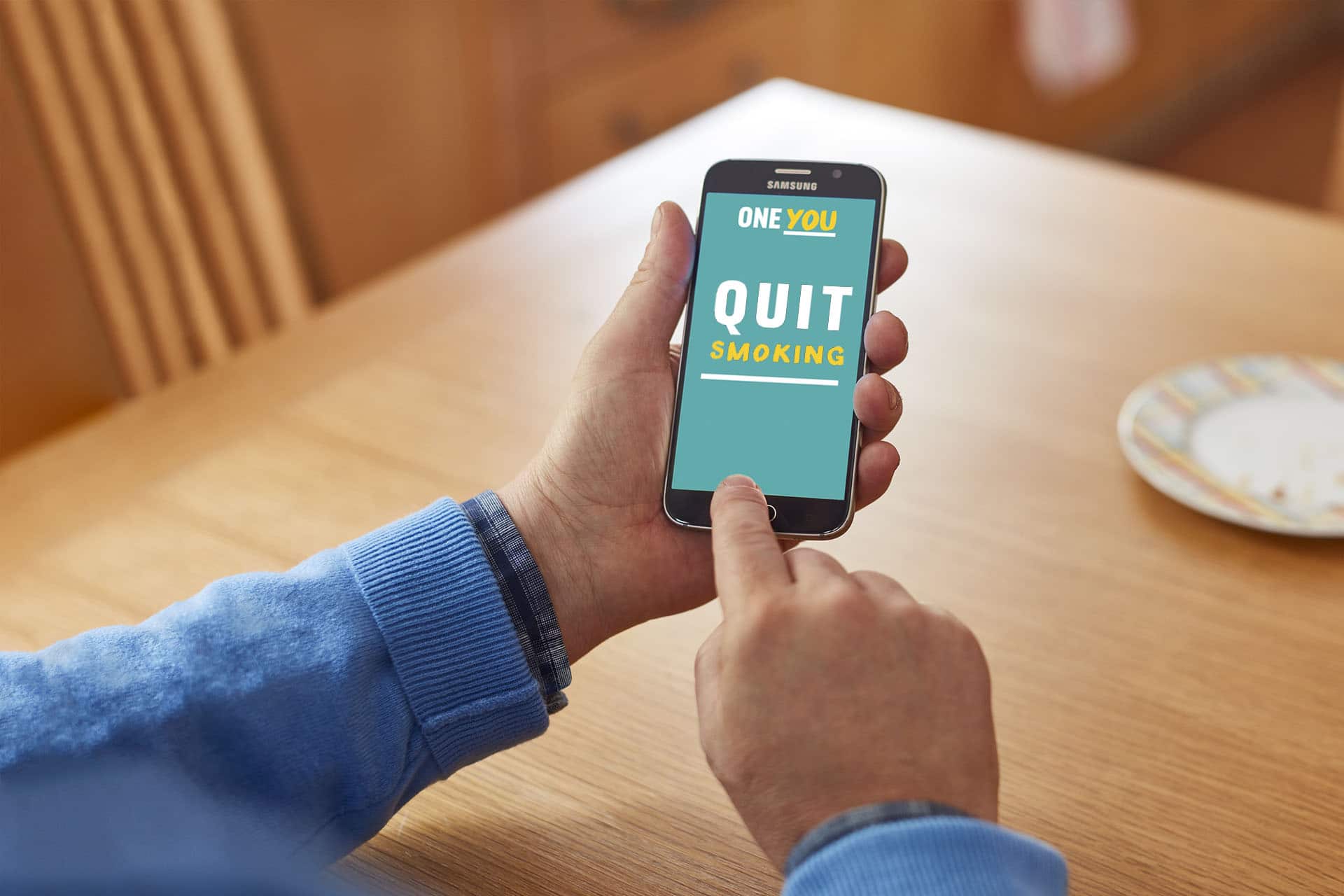Smoking is the biggest house fire killer
- Tobacco Burns Hot:
- Tobacco is made to burn at more than 700 degrees C.
- It can keep burning on its own, which means it can start fires.
- Dangers of Falling Asleep While Smoking:
- If someone sleeps with a lit cigarette, things like clothes, beds, or furniture can catch fire.
- Breathing in just a little of the harmful smoke (2-3 breaths) can make you pass out, making it hard to get away from the fire.
Some simple steps to help prevent a cigarette fire in the home
- No Smoking in Bed: It's easy to fall asleep with a lit cigarette and start a fire.
- Be Careful When Tired: You might doze off and accidentally drop your cigarette.
- Avoid Smoking with Drugs or Alcohol: If a fire starts, you might not be alert enough to escape.
- Fully Extinguish Cigarettes: Always make sure it's completely out.
- Install a Smoke Alarm: Check it every week. It can alert you early if there's a fire.
- Never Leave Lit Smokes Alone: They can tip over and start a fire.
- Use Sturdy Ashtrays: Pick ones that won't tip or catch fire.
- Think About Safety: Buy lighters and matches that are hard for kids to use.

Smoking in a car

- No Smoking in Cars with Under 18s: It's against the law to smoke in a car if someone under 18 is with you. This is to keep young people safe from harmful smoke.
- Fines for Breaking the Law:
- Both the driver and the person smoking can be fined £50.
- This rule is for all drivers in England and Wales, even if you're 17 or just have a learner's permit.
- But, if a 17-year-old driver is alone in the car, they can smoke.
- Dangers of Secondhand Smoke:
- Kids exposed to smoke breathe in lots of harmful chemicals.
- This can lead to serious health problems like meningitis, cancer, and breathing issues. It can also make asthma worse.
- Details About the Law:
- The rule is for any private vehicle that has a roof, even if it's only part-covered.
- The law still counts if you have windows, sunroof, or air conditioning on, or if you're sitting with the car door open.
- Convertible cars with the roof fully down are exceptions; the law doesn't apply to them.
For more information, see the guidance on new rules about tobacco, e-cigarettes and smoking
Helping smokers stay safe
Some elderly or people who can't move well have accidentally set themselves on fire while smoking.
You can often see signs of close calls, like burn marks.
Safety Tips
- Help Light Their Cigarettes: It's safer if someone else lights the cigarette for them.
- Use Safe Lighters: Take away matches and regular lighters. Give them a lighter that doesn't have a flame.
- Protect Their Clothes: Ask smokers to use a special fire-safe cover or apron when they smoke.
- Use Ashtrays: Always use a proper ashtray and keep it close. Empty it regularly.
- No Smoking in Bed: Try to stop them from smoking in bed. If they must, use fire-safe bed covers.
- Install Smoke Alarms: Make sure there are working smoke alarms in the house. Test them often.
- Keep an Eye on Smokers: Make sure someone is watching when they smoke.
- Designated Smoking Areas: Only let them smoke in certain safe places.
- Have a Fire Extinguisher: Keep a water-type fire extinguisher nearby. Make sure people know how to use it.
- Be Careful with Special Mattresses: Don't smoke on airflow mattresses. If they must, use fire-safe bedding.

